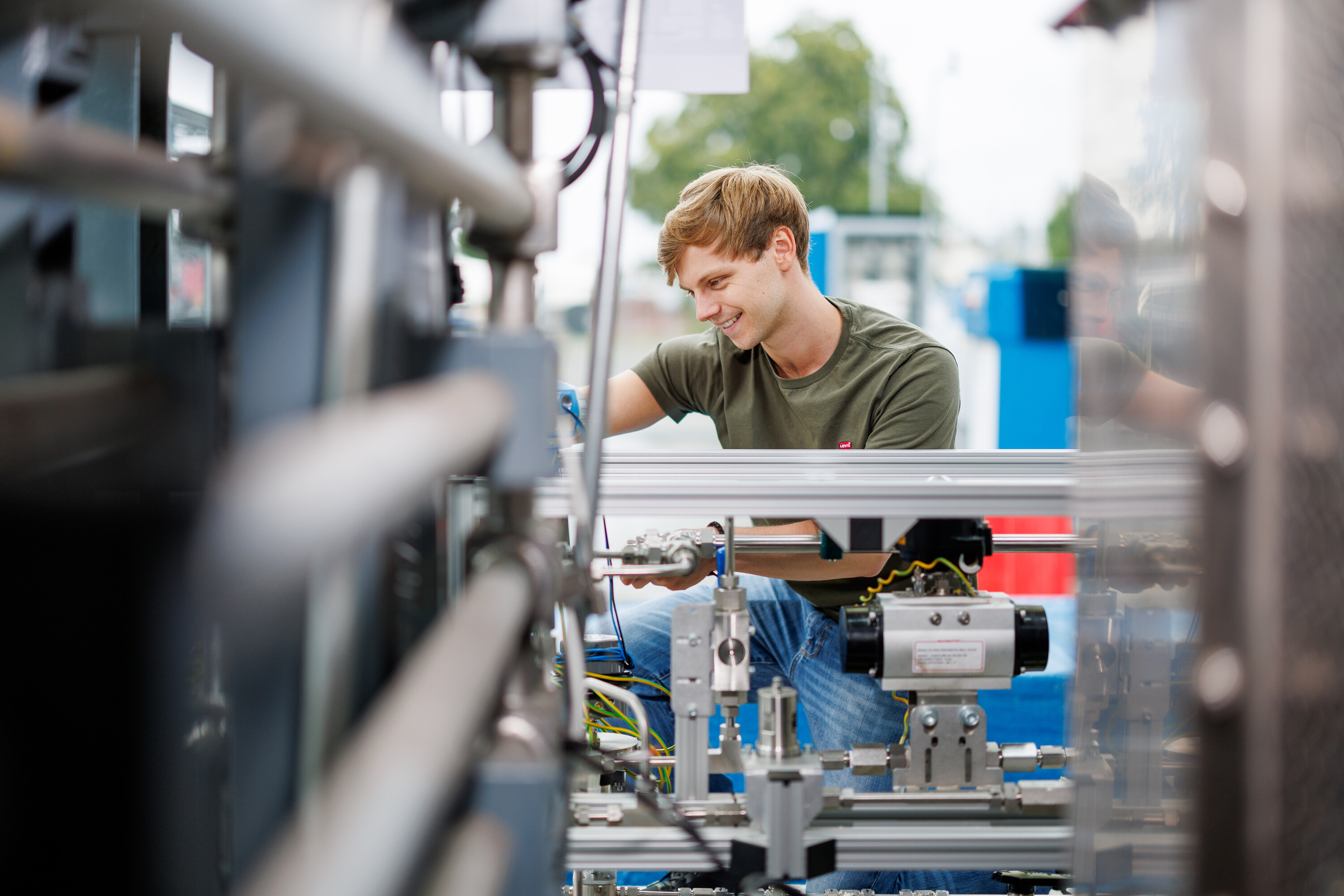The Three Specializations
Electrical Energy Technology
At the IET Institute for Energy Technology, you will learn the fundamental principles and workings of electrical energy technology. Applied research topics and applications include such elements as computing electric motors or transformers, smart grid and experimental high-voltage technology. At the SPF Institute for Solar Technology, you look in detail at photovoltaic systems and how they are integrated into energy systems.
You will research how to optimize electrical energy consumption and analyze the use of battery storage and efficient LEDs.
Thermal Energy Technology
In Switzerland, thermal energy generation and mobility are based to a large extent on petroleum products and natural gas. Under the Thermal Energy Technology specialization, you will look at alternative solutions. Firstly, you will examine energy generation based on renewable sources. Secondly, you will review the increased use and integration of renewable energies into energy technology systems.
At the SPF Institute for Solar Technology, applied research is conducted in the fields of collectors, storage and system technology for solar thermal systems. Areas of application range from domestic hot water production and space heating through to industrial process heating and solar thermal air conditioning.
At the IET Institute for Energy Technology, work focuses on power-to-gas and general processes of fluid dynamics and thermodynamics. Research is also conducted into wind power. Specifically, we examine rational energy use, energy storage and hydrogen cells.
Environmental Engineering
The core skills of this specialization lie in traditional environmental technology, dealing intensively with process technology. The focus is on minimizing the environmental impact of exhaust gas, waste water and refuse. At the UMTEC Institute for Environmental Engineering, you will take a more in-depth look at sustainable handling of air (from stationary and mobile applications, exhaust gases, aviation), water (municipal and industrial sewage treatment),
waste and soil (recycling). This includes systematic thinking, life cycle assessment, implementing circular economy concepts, innovation and integrated risk management, with the aim of reducing resource and energy consumption, waste generation, and emissions throughout the value chain and in production systems.
Tailor Your Studies to Your Interests
Your studies consist of theory and context modules in your chosen profile of Energy and Environment. Your specialization makes up two thirds of your degree program. You will develop professional knowledge via project work, additional classes and the Master’s thesis. You can choose an individual area of focus to suit your interests. When selecting your project work, you can demonstrate broad skills or choose to specialize in a specific area.
Additional Classes
Module descriptions of the additional classes offered are only available in German:
- Ausgewählte Kapitel elektrische Energietechnik 1 (pdf)
- Ausgewählte Kapitel elektrische Energietechnik 2 (pdf)
- Ausgewählte Kapitel thermische Energietechnik 1 (pdf)
- Ausgewählte Kapitel thermische Energietechnik 2 (pdf)
- Ausgewählte Kapitel Umwelttechnik 1 (pdf)
- Ausgewählte Kapitel Umwelttechnik 2 (pdf)
- Hands-on introduction to AI with recursive learning algorithms (pdf)
- Ausgewählte Kapitel Material & Verfahrenstechnik 1 (pdf)
- Ausgewählte Kapitel Material & Verfahrenstechnik 2 (pdf)
- Mathematisches Seminar (pdf)
Project Work and Master’s Theses
Project work and the master’s thesis form the core of your master’s program. The project work is completed in conjunction with one or more industrial partners or as part of publicly funded projects. This will involve handling practical, application-oriented research topics at a high technical level. The results you achieve could be incorporated directly into products or processes offered by the participating company.
Theory and Context Modules
You complete one third of your master's degree as theory and context modules. Theory modules with technical-scientific focus (TSM) and advanced fundamentals (FTP) provide you with long-term knowledge and train your skills in abstract thinking. You complete your timetable with context modules (CM) from the fields of management, communication and culture.
Study Guidance
Each student receives intensive support from a student advisor. The first conversation with a student advisor is after acceptance. You work together to create a timetable that matches your interests and objectives. Your individual study agreement sets out your study objectives and the modules selected to achieve them.

